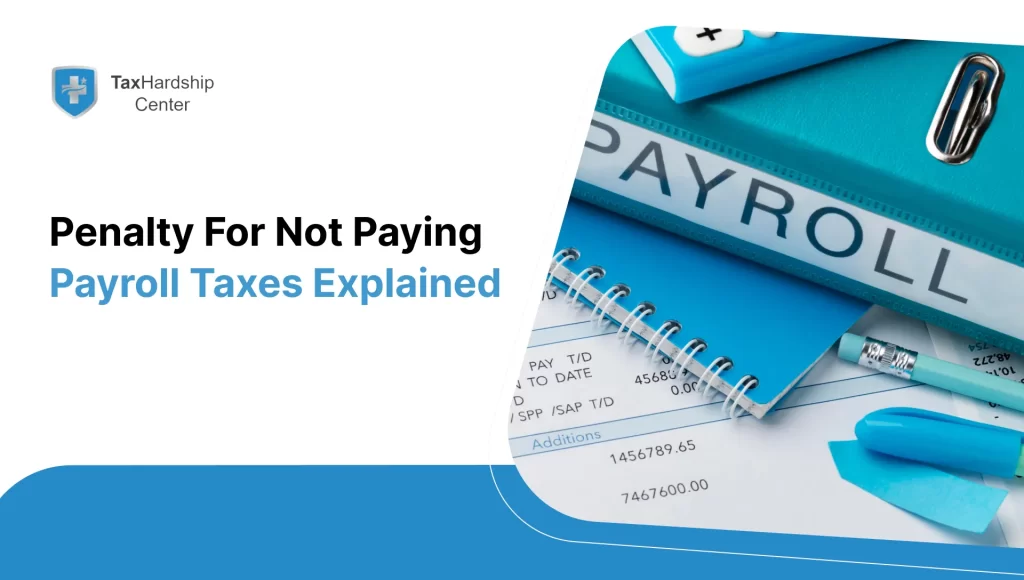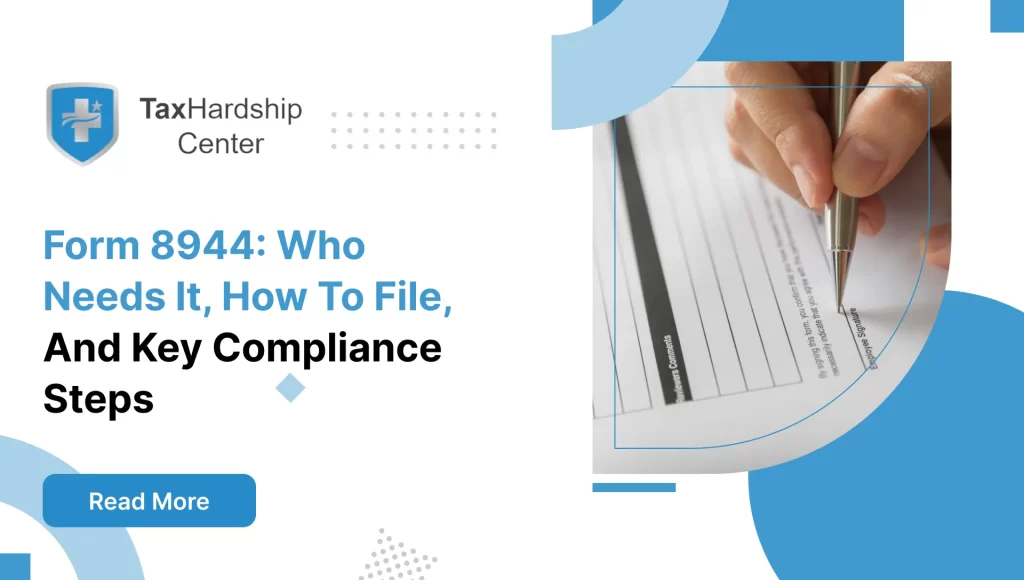Unpaid payroll taxes aren’t just a headache—they’re a significant legal issue that can lead to fines, penalties, and even criminal charges. Employers must understand their obligations, calculate penalties, and take steps to resolve unpaid taxes while preventing future mistakes.
What Are Payroll Taxes?
Payroll taxes are mandatory contributions employers must withhold from employees’ wages and pay to federal, state, or local governments. These taxes fund Social Security, Medicare, unemployment insurance, and other essential programs.
Types of Payroll Taxes
- Federal Income Tax: Withheld based on the employee’s W-4.
- Social Security and Medicare (FICA): A split responsibility between employer and employee.
- Unemployment Tax (FUTA): Paid entirely by the employer.
Why Payroll Taxes Matter
Payroll taxes ensure employees’ benefits and fund public services. Non-compliance deprives employees of their rights and disrupts public trust.
Legal Obligations for Employers
Employers must legally deduct payroll taxes and deposit them on time to the IRS and other taxing authorities. Ignoring these duties can result in severe consequences.
Payroll Tax Deadlines
- Semiweekly Depositors: Must deposit within a few days of issuing payroll.
- Monthly Depositors: Deposits are due by the 15th of the following month.
Recordkeeping Requirements
Employers must keep accurate payroll tax records for at least four years. These records include:
- Employee W-4 forms
- Tax deposit schedules
- Quarterly payroll tax returns (Form 941)
Non-Compliance Risks
Failing to meet these obligations isn’t just a breach of trust—it’s also illegal. The IRS takes payroll tax violations seriously and holds employers accountable.
How Tax Hardship Center Helps Resolve Payroll Tax Issues
At Tax Hardship Center, we understand how stressful payroll tax issues can become for business owners. Missing payroll tax payments doesn’t just invite penalties and interest—it puts your business at risk of serious legal trouble. That’s why we’ve designed our services to provide clear, practical solutions that help you regain control of your finances and avoid future problems.
Our Expertise in Payroll Tax Resolution
Payroll tax problems often stem from cash flow challenges, mismanagement, or falling behind on deadlines. We’ve helped countless businesses like yours tackle these issues head-on. Our team specializes in working with the IRS to create customized payment plans, negotiate settlements, and confidently guide you through the complex tax system.
Why Choose Tax Hardship Center?
- IRS Payment Plans: We work directly with the IRS to establish manageable installment agreements that fit your financial situation.
- Offer in Compromise: If your business qualifies, we can help you settle for less than the total amount owed.
- Penalty Abatement: Our tax experts can request a reduction or removal of penalties, depending on your circumstances.
- Personalized Guidance: No cookie-cutter solutions here—we tailor our strategies to meet the unique needs of your business.
Prevent Payroll Tax Problems Before They Start
While resolving existing payroll tax issues is crucial, we also help you implement preventative measures to ensure your business stays compliant. From organizing records to automating tax deposits, our team provides actionable advice to safeguard your operations against future problems.
Your Partner in Stress-Free Tax Compliance
No business owner should feel alone when navigating payroll tax challenges. At Tax Hardship Center, we’re committed to simplifying the process, protecting your assets, and helping your business thrive. If you’re facing payroll tax penalties, don’t wait—our team is here to provide expert guidance and support.
Consequences of Failing to Pay Payroll Taxes
Missing payroll tax payments triggers a chain reaction of penalties and interest that can cripple a business.
Penalties for Late Payments
- 2% Penalty: Deposits 1-5 days late.
- 10% Penalty: Deposits more than 16 days late or unpaid after receiving an IRS notice.
Interest on Unpaid Taxes
Interest accrues daily on unpaid payroll taxes. The rate changes quarterly, making the burden grow quickly.
Legal and Financial Fallout
The consequences go beyond monetary penalties:
- Personal Liability: Owners and responsible parties may face personal financial ruin.
- Criminal Charges: Intentional tax evasion can lead to imprisonment.
Trust Fund Recovery Penalty (TFRP) Explained
The IRS imposes the Trust Fund Recovery Penalty (TFRP) to recover unpaid payroll taxes withheld from employees.
Who Can Be Held Liable?
The TFRP applies to individuals responsible for collecting, accounting for, and paying payroll taxes, including:
- Business owners
- Payroll managers
- Officers
How the TFRP Is Calculated
The penalty equals the total unpaid portion of the trust fund taxes, including Social Security and Medicare withheld from employees.
Avoiding TFRP
- Timely Deposits: Stick to IRS deadlines.
- Internal Audits: Regularly review payroll processes to ensure compliance.
Calculating Penalties and Interest
Understanding how penalties and interest accumulate can motivate employers to stay compliant.
Breakdown of Penalty Calculations
The IRS uses a tiered system to calculate penalties based on the duration of non-payment:
- 2% for up to 5 days late
- 5% for 6-15 days late
- 10% for more than 16 days
Interest Rates
The interest rate is determined quarterly and compounds daily. It typically aligns with the federal short-term rate plus 3%.
Example Scenario
If an employer owes $10,000 and delays payment by 30 days, they could incur:
- $1,000 in penalties (10%)
- $100+ in interest (varies by rate)
Steps to Rectify Unpaid Payroll Taxes
If you’ve fallen behind on payroll taxes, take these steps to minimize penalties and regain compliance.
1. Assess the Situation
Review your payroll records to determine the extent of unpaid taxes. Identify the amount owed, including penalties and interest.
2. Contact the IRS
The IRS offers payment plans and settlements for businesses struggling with tax debt. Options include:
- Installment Agreements: Monthly payments to settle outstanding taxes.
- Offer in Compromise: A reduced settlement for qualifying businesses.
3. Make Immediate Payments
Pay what you can afford now. Partial payments demonstrate good faith and reduce accruing penalties.
4. Seek Professional Assistance
Tax attorneys and payroll specialists can guide you through the resolution process and prevent further errors.
Preventative Measures for Employers
Staying ahead of payroll taxes is far easier than rectifying mistakes.
Automate Payroll Processes
Invest in payroll software that calculates, withholds, and deposits taxes automatically.
Conduct Regular Audits
Review payroll records quarterly to ensure compliance with tax laws.
Educate Staff
Train payroll teams to understand tax deadlines, deposit schedules, and reporting requirements.
Hire a Professional
Certified payroll professionals or third-party providers ensure taxes are managed correctly, reducing risk.
Conclusion
Payroll taxes are a responsibility that employers can’t afford to ignore. Missing deadlines or withholding payments can spiral into financial, legal, and reputational issues. By understanding your obligations, staying proactive, and using professional tools or services, you can avoid the costly consequences of non-payment.
Need help ensuring payroll tax compliance? Contact a tax specialist today to protect your business and peace of mind.
Why Tax Hardship Center?
1. Hassle-Free Assistance:
Say goodbye to sleepless nights and endless tax-related stress. At the Tax Hardship Center, we believe in simplifying the complex. Our team of experts is dedicated to guiding you through every step of the process, ensuring that your tax concerns are met with precision and care.
2. 14-Day Money Back Guarantee:
We’re so confident in our ability to ease your tax worries that we offer a 14-day money-back guarantee. If you’re not satisfied with our service for any reason, we’ll gladly refund your investment. Your peace of mind is our top priority!
3. Free Consultation:
Are you curious about how we can transform your tax experience? Book a free consultation now! Our team will assess your situation, answer your questions, and provide free insights tailored to your needs.
4. Nationwide Coverage:
No matter which corner of the United States you call home, the Tax Hardship Center covers you. We proudly serve all 50 states, bringing our expertise to your doorstep. Wherever you are, our commitment to excellence follows.
FAQs – Penalty for Not Paying Payroll Taxes
Q1: What happens if I accidentally miss a payroll tax deadline?
You’ll face penalties and interest. However, contacting the IRS promptly and paying what you can may reduce the financial impact.
Q2: Can I go to jail for not paying payroll taxes?
Intentional tax evasion can lead to criminal charges, including imprisonment. Accidental mistakes are usually penalized financially, not criminally.
Q3: How is the Trust Fund Recovery Penalty (TFRP) applied?
The TFRP applies to unpaid trust fund taxes (e.g., Social Security, Medicare) and can be levied against individuals responsible for tax payments.
Q4: Are payroll taxes the same as income taxes?
Payroll taxes fund Social Security, Medicare, and unemployment programs, while income taxes cover broader government expenses.
Q5: What’s the best way to avoid payroll tax penalties?
Automate payroll, adhere to deposit schedules, and conduct regular audits to ensure compliance.








